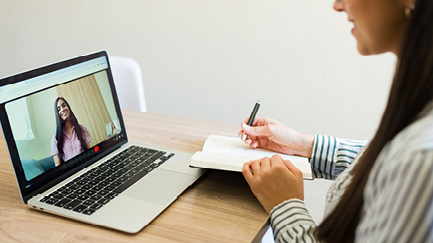
How telehealth can support you
If you’re a veteran or family member looking to access Mates4Mates clinical services but can’t make it to a centre, a telehealth appointment may be the answer.

As the current COVID health situation changes in Australia, restrictions on areas of our lives will be lifted and some areas will start getting back to normal again. Having worked hard to adapt to the current restrictions, these changes may raise anxiety for a number of reasons.
In addition, you may notice that your beliefs about how the restrictions should be eased are different from those around you and this may add to increased conflict and unease with significant others. At such times it is important to show compassion and kindness to yourself and others as everyone has a different perspective of the current situation.
All of these feelings related to these concerns are understandable and strategies from Acceptance and Commitment Therapy provide a set of practical steps for mindfully managing anxiety during times of uncertainty.
F= Focus on what’s in your control.
When we face any kind of crisis, fear and anxiety are inevitable, but it is important to focus on what we can control. You don’t control the decisions that governments make, the economy or the virus itself but you do control how you react to these things in the current moment. This might mean that we have to weather some difficult and distressing thoughts and feelings about what is happening right now. These feelings may feel like a storm passing overhead and in a storm, it is important to not be ‘swept out to sea” but to ‘drop anchor’ and weather the storm. This won’t make the storm go away or pass any more quickly, but it will ensure that we are safe once it has passed. The following steps can be used to assist in ‘dropping anchor.’
A= Acknowledge your thoughts and feelings
Silently, kindly and with compassion acknowledge the feelings and thoughts that are ‘showing up’, you might say to yourself “here is anxiety” or “I notice I am having thoughts about getting sick”. Whilst you are acknowledging these difficult thoughts and feelings, focus on connection with your physical body.
C= Come back into your body
This isn’t to ‘get rid’ of the difficult thoughts and feelings, it is to acknowledge they are there and to allow you at the same time to connect with your body and focus on continuing to control your physical actions even when you cannot control your feelings or thoughts.
E= Engage in what you are doing
Ideally run through this exercise 2 or 3 times or do it for 2 to 3 minutes.
Follow along from home with free audio recordings of this exercise.
Adapted from FACE COVID: How to respond effectively to the Corona Crisis by Dr Russ Harris.
Written by Clare Mitchell, Mates4Mates Psychologist

If you’re a veteran or family member looking to access Mates4Mates clinical services but can’t make it to a centre, a telehealth appointment may be the answer.